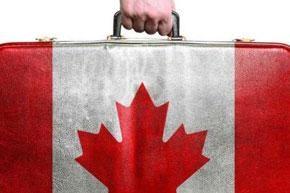Welcome to the May issue of my monthly newsletter!
With Spring at our doorstep, now is a great time to do some Spring cleaning in the form of tidying up your monthly budget! Renovations are another popular activity this time of year, so I have included some tips for you on that below! Lastly, if you are new to the country or know someone who is and seeking their first mortgage in Canada, check out my article on what you need to know.
Thanks again for your continued support and introductions! Have a great month!
Determine Your Monthly Budget

It's easy to get overwhelmed when thinking about your finances, especially if you are saddled with debt. The best way to determine your monthly budget is to start by recording your total monthly income for the family and your total monthly expenses. To make these easier to review, it is ideal to break out your expenses into two categories: fixed and flexible.
Fixed Expenses: Fixed expenses are bills that stay relatively the same each month and will typically even come out on the same date. Some examples of fixed expenses, which are generally non-negotiable, include mortgage or rent payments, car/household insurance, car loans, other loan payments, credit card payments, cell phone bill, household utilities, child support (if applicable) and any medical bills such as medication, orthodontic payments, etc.
Flexible Expenses: Once you calculate your fixed expenses, you will want to take a look at your flexible expenses or payments. Flexible expenses may change from month to-month and are typically the things households look at when trying to reduce spending or free up monthly funds. These types of expenses include groceries, cable/streaming services, internet, gas, entertainment and dining out, etc.
The goal of determining your monthly budget is to see how much of your monthly income goes to bills, and what is leftover for spending and entertainment. It is important to check up on your expenses and spending habits on a regular basis to ensure that you are continuing to live within your means, and are not stretching your budget to the point of extra debt. It can be easy to run up a credit card thinking “I’ll pay it off later”, but unless it is an emergency situation (vet bill, car repairs, etc.) it is best to avoid that mentality and only spend what you have on-hand.
If you do happen to find yourself struggling to make your bills each month, it might be time to look around for some places to save some extra money.
Some great options for saving money include:
- Reducing or eliminating your cable package
- Lowering your energy usage (turn down that thermostat and bundle up in colder months!)
- Reducing water usage (taking shorter showers, doing less loads of laundry)
- Going out to eat less frequently or entirely. It is amazing how much you can save by skipping the drive thru and making your own coffee at home!
- Learn to say NO (to gift exchanges at work, nights out with friends, special events whenever possible, etc.)
- Attempt to negotiate lower bills with any company you deal with
- Reduce grocery spending (or get cash back when you do shop)
- Use coupons! Shop on sale, collect customer loyalty points to buy bigger ticket items
- Buy used when you can! There are great resources for buying used such as Facebook Marketplace, Craigslist or Kijiji. This is also a great place to make some money! Purge your house and sell anything you don't love or need anymore.

Things to Know Before you Renovate
Renovating your space can be a big project! Before you get started, we have put together a list of the 5 most important things you need to know before you renovate:
1. Know Your End Goal
Before starting your renovation, it is important to know what your end goal will be for the project. How extensively are you renovating? Are you doing so to improve the resale value of your home, or are you doing it to improve your own daily environment? Knowing the reason for the renovation can help you determine a plan for how to proceed and how in-depth you want to go.
2. Set a Budget - and Stick to it!
Once you determine the scope of your renovation project, you need to determine your budget. Determining your budget - and sticking to it - is one of the most important parts of any renovation. Renovations can easily spiral out of control or become much bigger than anticipated if proper budgets and goals are not in place. However, even with the strictest budget, there could be unexpected costs, so be sure to add in a contingency fund. While it is easy to want a top of the line renovation, it is important to look at alternative products or substitutes that may be just as sturdy but save you some money upfront.consider
3. Obtain Permits
Many homeowners forget about this one, but it is extremely vital to your renovation project - especially those that are on a larger scale. While you may consider obtaining a building permit to be an unnecessary headache, it is necessary and will ensure the changes you make today won’t come back to haunt you tomorrow. These permits are necessary to ensure your house remodel meets structural and fire safety requirements. If you ever do put your house up for sale, code inspectors in most jurisdictions can enforce the removal of any non-conforming work if not up to snuff - creating a further (and more expensive headache) down the road.
4. Ask for References
It is important to be sure that the work you are having done to your house will be done in a manner that ensures it remains safe and structurally sound. This is what makes asking for references so important! Don’t rely solely on client testimonials, seek out customers that can give you a firsthand account and answer any questions you may have. It is also important to see before and after images of a contractor’s prior work. Take the time to gather the information and determine which questions to ask!
5. Consider Your Routine
My mom was always a DIYer when it came to home renovations. She painted herself, re-tiled entire rooms and had my dad help her put up drywall to split up big spaces! So, when it came to considering our routine this was a non-issue. However, for those of you like me (absolutely not a DIYer) who are planning on hiring a contractor, be clear about your daily routine! Work with the contractor to come up with start and end times that cause the least disruption to your daily schedule and help everyone remain comfortable.
What to Know if You’re New to Canada

Canada has seen a surge of international migration over the last few years. With all these new faces in town wanting to plant roots in this great country, we wanted to touch base on some of the details surrounding mortgages and how new immigrants can qualify to be homeowners.
If you are already a Permanent Resident or have received confirmation of Permanent Resident Status, you are eligible for a typical mortgage with a 5% down payment - assuming you have good credit.
Permanent Resident with limited credit?
For Permanent Residents with limited credit, or individuals who have not yet qualified for Permanent Residency, there are still options! In fact, there are several ‘New to Canada’ mortgage programs through CMHC, Genworth Financial and Canada Guaranty Mortgage Insurance, which cater to this group of homebuyers.
How to qualify?
To qualify for these New to Canada programs, you must have immigrated or relocated to Canada within the last 60 months and have had three months minimum full-time employment in Canada. Individuals seeking credit of 90.01-95% need to produce an international credit report (Equifax or Transunion) demonstrating a strong credit profile OR two alternative sources of credit demonstrating timely payments (no arrears) for the past 12 months. The alternative sources must include rental payment history and another altnernative, such as hydro/utilities, telephone, cable, cell phone or auto insurance. For individuals looking for 90% credit, a letter of reference from a recognized financial institution OR six (6) months of bank statements from a primary account will be required.
Utilizing a mortgage broker will help to ensure you understand your options and they can help determine the best program and mortgage choice for you. Before you talk with a mortgage broker, there are a few things you need to know when it comes to submitting an application - and getting approved - for your first mortgage in Canada:
1. Supporting Documents: If you’re new to the country but have weak credit, supporting documents will come in handy. These may include proof of income, 12 months worth of rental payments or letter from landlord, documented savings, bank statements and/or letter of reference from a recognized financial institution. These documents all paint the picture of whether you are a safe investment for a lender.
2. Build your Credit Rating: This is one of the most important aspects to getting a mortgage as credit rating determines your reliability as a borrower and will determine your down payment rate. One of the best ways to build your credit is by getting a credit card that you use and pay off each month. Paying other bills such as utilities, cell phones and rent can also contribute to your credit score and reliability.
3. Start Saving: One of the most expensive aspects of home ownership is the down payment; an upfront cost vital to securing your future. The down payment can either be 5% or 10% depending on your status. It is important to note that if you're paying $500,000 or more for your home, the minimum down payment will be 5% for the first $500,000 and 10% of any amount over $500,000 - regardless of your residency status.
4. Choose a Mortgage Provider: Once you are ready to get your mortgage, you need to decide where you want to borrow from. There are three key lenders: Bank, Credit Unions and Monolines, as well as the option to purchase direct or go through a mortgage broker which may be able to offer you some extra savings.
Buying a house is an exciting step for anyone, but it is especially so for individuals who are new to the country. As daunting as it may seem, purchasing a home is completely possible with a little knowledge and preparation!
